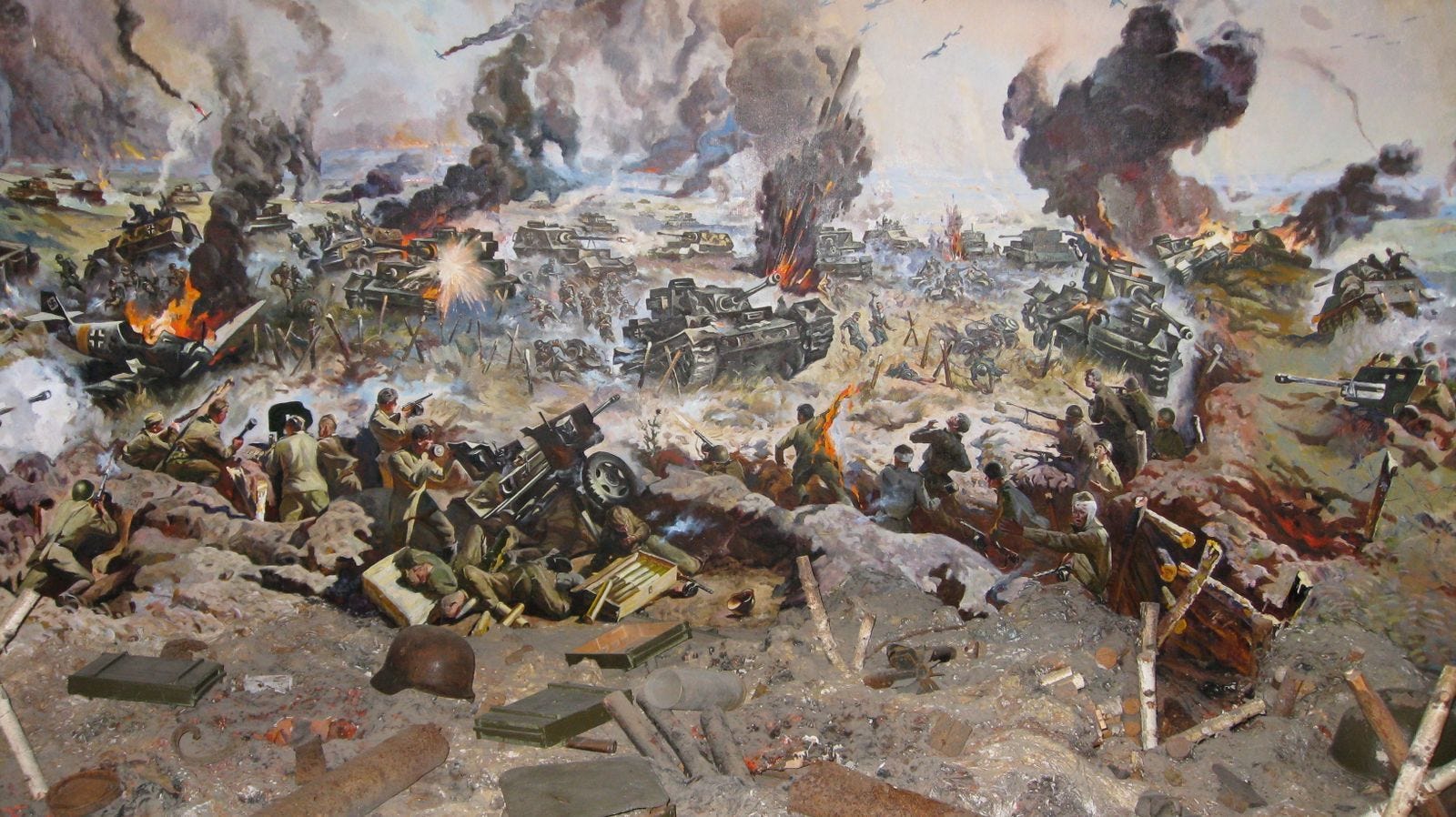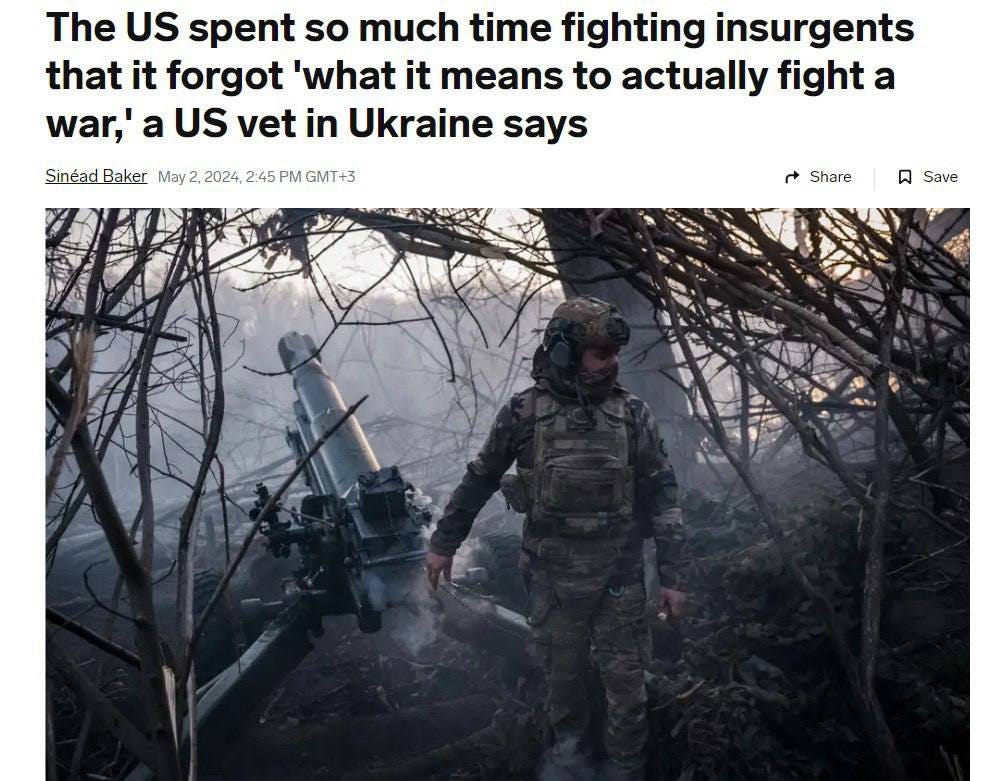![]()

by Simplicius
It’s not often that I vaingloriously feather my own cap, but this occasion will count among the rare ones that necessarily must highlight the many accuracies of our previous reporting, whose validation is only now coming to light by the laggardly verifications of Western military pundits.
The following will be a breakdown of one of the latest RUSI reports on lessons learned from the Ukrainian war:

As reminder, RUSI is the Royal United Services Institute, and claims to be “the world’s oldest and the UK’s leading defence and security think tank.” And not to be confused with a prominent Russian politician of the same name serving in the Duma, the article’s author Alex Vershinin’s credentials are listed as follows:
Lt Col (Retd) Alex Vershinin has 10 years of frontline experience in Korea, Iraq and Afghanistan. For the last decade before his retirement, he worked as a modelling and simulations officer in concept development and experimentation for NATO and the US Army
The very ethos of the arguments they make is stated outright from the beginning:

The entire report revolves around an urgent plea for the West to remold its strategic concept of warfare, which has been badly degraded and fallen out with the times by several decades of lazy misallocation of resources and reorientation toward colonial policing actions.
In the following paragraph, the author defines precisely the difference between ‘maneuver’ wars and classic attritional wars, which is relevant in understanding the rest of the exegesis:
Attritional wars require their own ‘Art of War’ and are fought with a ‘force-centric’ approach, unlike wars of manoeuvre which are ‘terrain-focused’. They are rooted in massive industrial capacity to enable the replacement of losses, geographical depth to absorb a series of defeats, and technological conditions that prevent rapid ground movement. In attritional wars, military operations are shaped by a state’s ability to replace losses and generate new formations, not tactical and operational manoeuvres. The side that accepts the attritional nature of war and focuses on destroying enemy forces rather than gaining terrain is most likely to win.
In particular, re-read the last statement:
The side that accepts the attritional nature of war and focuses on destroying enemy forces rather than gaining terrain is most likely to win.
This appears a major admission of Russia’s strategy. After all, recall how Ukraine’s strategy famously centers on “not one step back”, because even a single lost yard represents unbearable reputational costs for Zelensky’s much-admired ‘international community’. This has led to generals like Syrsky being dubbed “General 200” for his no step back attitude in prosecuting defenses like that of Bakhmut and Avdeevka, among others.
Russia on the other hand has notably used strategic retreat to such a vast extent it has left the military commentariat befuddled, as in the case of the large-scale back-to-back Kherson and Kharkov region withdrawals, not to mention the late March 2022 rerouting action from the entire north of the Kiev, Sumy, and Chernigov regions.
What this amounts to is the bitter admission that Russia has in fact been ahead of the mark all this while. Despite full-throated attempts to disparage Russia’s military choices throughout the course of the war, it has only now in retrospect become obvious to ‘experts’ that Russia has in fact been utilizing the superior common sense strategy all along, while waging the correct war.
What has it amounted to? It’s clear to see: just read the headlines. For Russia, the headlines talk incessantly of an “over abundance” of manpower and materiel. In the case of Ukraine, it’s the total opposite, the dire dearth of men. One side has competently pursued the strategy outlined by RUSI above: “The side that accepts the attritional nature of war and focuses on destroying enemy forces rather than gaining terrain is most likely to win.”
I’ve said since the beginning that most of Russia’s objectives in the war will be reached not by territorial gains but attritional ones. For instance, there’s almost no feasibly realistic way for Russia to “capture” Odessa via kinetic and direct physical assault. Going cross-river is unlikely, and having to come down from the north in Kiev would hypothetically take years. But simply baiting Ukraine to throw in all its blood and treasure into the Donbass killbox and meatgrinder, Russia stands to attrit the AFU both militarily, materially, economically, and morally to the point of exhaustion and collapse, allowing the subsequent capture of required territories via Ukrainian capitulation.
RUSI goes on with another big admission:
The West is not prepared for this kind of war. To most Western experts, attritional strategy is counterintuitive. Historically, the West preferred the short ‘winner takes all’ clash of professional armies. Recent war games such as CSIS’s war over Taiwan covered one month of fighting. The possibility that the war would go on never entered the discussion. This is a reflection of a common Western attitude. Wars of attrition are treated as exceptions, something to be avoided at all costs and generally products of leaders’ ineptitude. Unfortunately, wars between near-peer powers are likely to be attritional, thanks to a large pool of resources available to replace initial losses. The attritional nature of combat, including the erosion of professionalism due to casualties, levels the battlefield no matter which army started with better trained forces. As conflict drags on, the war is won by economies, not armies. States that grasp this and fight such a war via an attritional strategy aimed at exhausting enemy resources while preserving their own are more likely to win. The fastest way to lose a war of attrition is to focus on manoeuvre, expending valuable resources on near-term territorial objectives. Recognising that wars of attrition have their own art is vital to winning them without sustaining crippling losses.
There’s a lot of truth to unpack just in that above statement. But let’s keep it minimal by highlighting the most salient points:
- The West continues thinking long attritional wars are an exception rather than the rule in near-peer conflicts.
This appears to indicate that Western military structures are no longer systemically and institutionally capable of approaching war in a manner beyond one ingrained into them in the low-intensity COIN/policing action years of the past few decades. This has been highlighted recently as the realization slowly sets in, for instance from yesterday:

Western mercenaries who visited Ukraine admitted that their combat skills had “atrophied”
This was reported by the Business Insider portal with reference to the American military.
“We’ve become so accustomed to the idea of fighting guerrilla wars, fighting terrorists and everyone else, that we’ve forgotten what it’s really like to fight a peer war,” said one American mercenary.
In the above article, the U.S. mercenary says no U.S. soldier is being trained or prepared properly for a modern war like Ukraine:
He said that he has seen a lot of Western soldiers struggle in Ukraine as “they already have a set idea about how things should be and everything, and it’s just not that way out in Ukraine.”
Another American veteran in Ukraine told BI this month that he had similar concerns. He said that his friends still in the US Army ask him for tips on how to fight with drones or in trenches, as they aren’t getting training that fully reflects what is happening in Ukraine.
He explains the key difference and then echoes my own words:
He said that in many places where he fought in Ukraine, “there is nowhere that is safe,” while when he was in Afghanistan and Iraq, if you were half a mile behind the front line, “you could stand outside and have a barbecue, a sandwich, and drink.”
Unfortunately for the West, once an action has been repeated for that long, it becomes reflexive and institutionalized to such a deeply embedded level that there appears almost no way to come back out of it.
The reason is, multiple generations of both leaders and servicemen have been inculcated with a particular set of skills, mindsets, and approaches to the point it’s become axiomatic by nature. Furthermore, the ancillary institutional appendages which function as symbiotic conduits to the corpus of the military structure have all likewise atrophied or have simply been rerouted to totally new paradigms of functioning completely antithetical to the ‘total war’ attritional approach.
In simple terms, this obviously means that all the attendant MIC suppliers and manufacturers have built their architectures, production lines, and supply chains around the concepts inherent to the ‘Western’ style of colonial war: low quantity, high precision, high cost systems which excel at individual targeting of terrorist leaders and such, but are too finicky and expensive to maintain in attritional conflicts. This has calcified within their structures to an institutional degree.
I spoke about this at length before:
One of the key overlooked concepts I mentioned above is not simply that Russian systems are cheaper and easier to maintain, but rather that they’re built around an entirely different philosophical paradigm for warfare.
The most important of these is that the systems are built with the express understanding and expectation that they will have to someday be manned by under-trained conscripts, and thus have to be designed around the philosophy of extreme ease of use and intuitiveness. The famous example I used to highlight this is how, from the U.S. Army’s own Fort Benning reports, the Javelin had a less than 19% combat effectiveness, owing mostly to its complicated use and the recruits’ inability to fully internalize its combat parameters, such as minimum engagement distances, locking procedures, etc.:


Lets adopt Japan’s version when it come to Illegal Aliens
The US/Nato version of war in Ukraine was, basically retarded. Imagine a bakeoff trying baking a cake, with all the ingredients the cook cant read the recipe directions. The only vessel they had to mix in was a sieve. Start with rockets, money and lots of bullets to repel tanks, when those leak through the bottom add more, lots and lots of really expensive ingredients that the cook doesnt know how to use, they just toss it into the sieve as well. When its perfectly clear all the cook has is a total mess add more! The bakeoff you have entered has already been won, but you are told they have secret master chefs in the kitchen telling the cook what to do all you must do is add more to the sieve. Remember you had to put all this on your credit card.
The dogs in the kitchen lapping up the mess are fat as hell.
Let’s be real.
The US military, under joe’s leadership, is more adept at hormone replacement schedules, sex-reassignment surgeries and DEI than it is at “waging war.”
obama fired many military leaders who were trained in warfare.
joe fired many more and used the covid mandate to fire all sorts of lower-level soldiers.
All that are left are trannies, soy-boys, toadies, and a very few fine men.